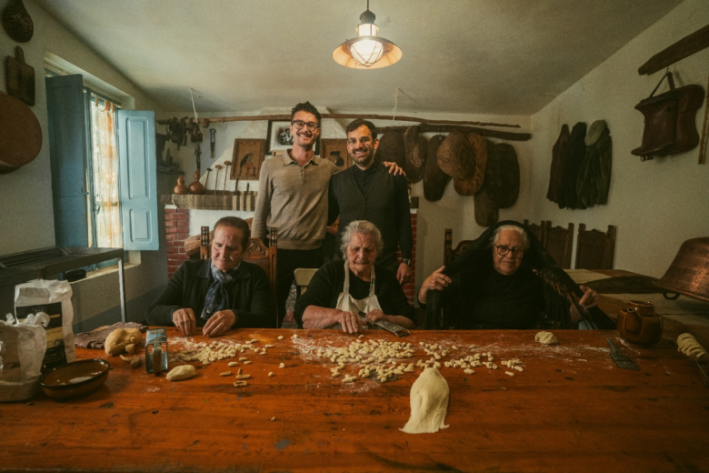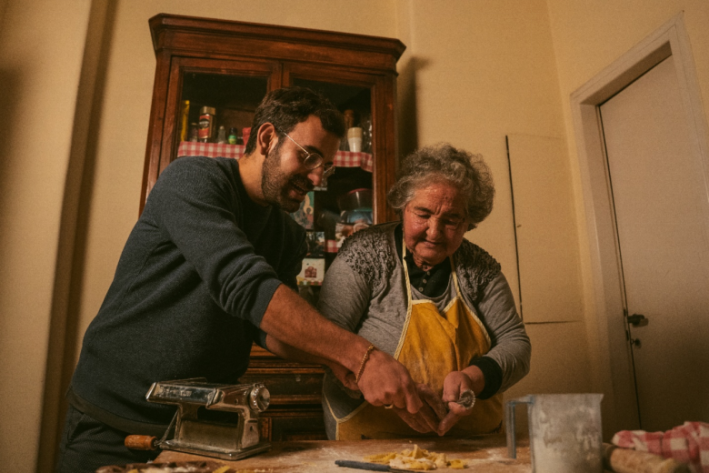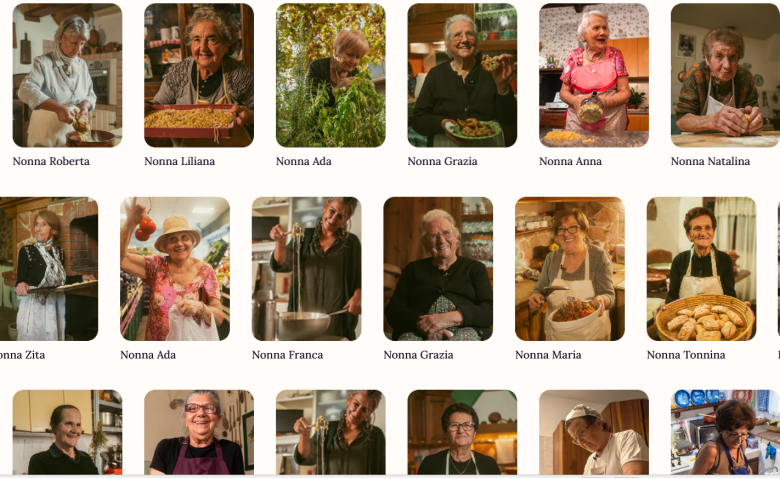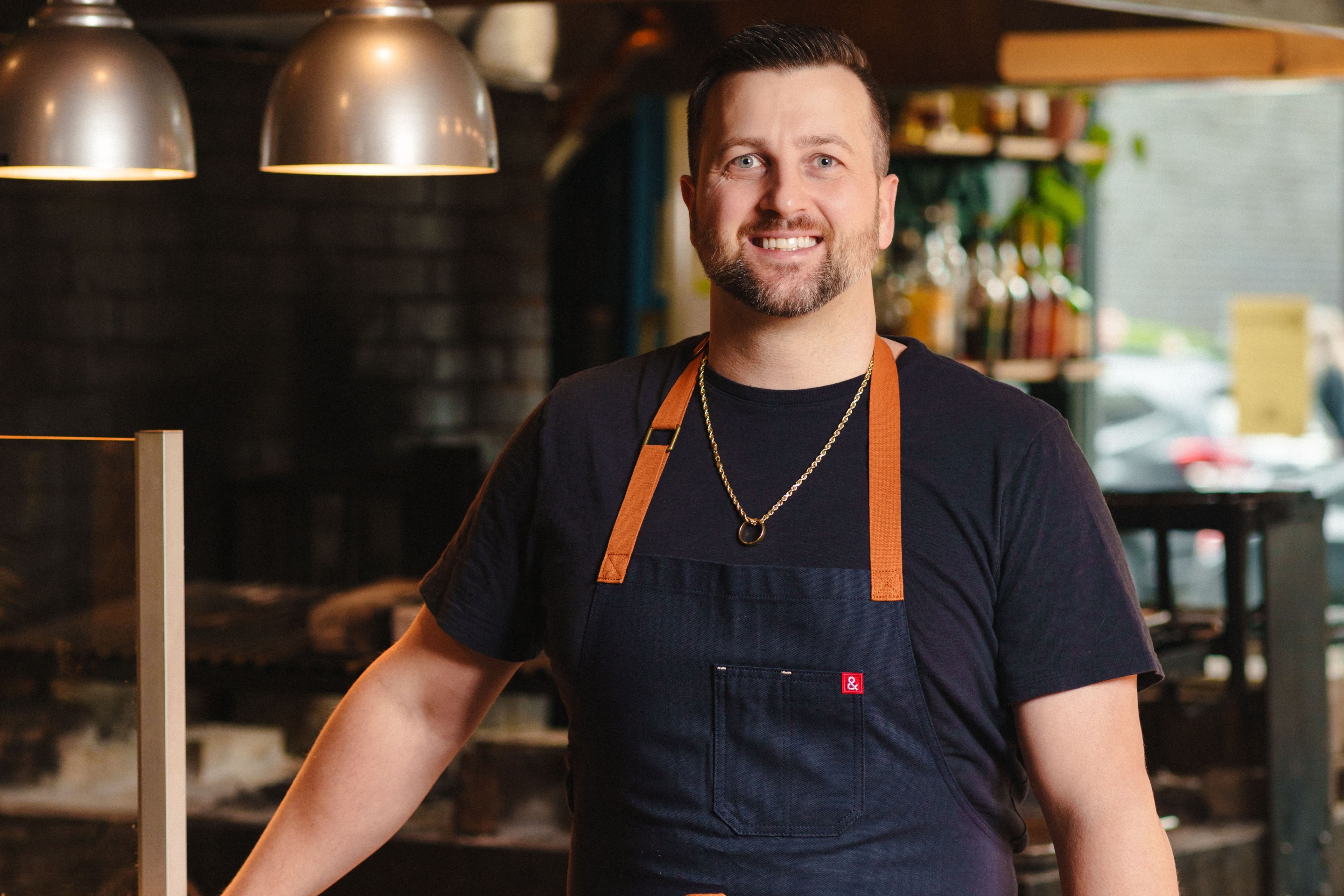It all started when anana co-founder, Teodoro Mefalopulos, born and raised in Italy, experienced loss. “As my grandparents, in the past decade, started passing away, I realized a lot of these little moments and these dishes that were a part of my up bringing were just gone; disappeared,” Teo shared with me. “I thought this was such a shame; why isn’t anyone writing it down?”
This question sparked an idea that Teo took to his business partner, Blake Takushi. What if they created a platform that would redesign and reimagine the cooking experience, putting grandmothers at the center of it all? Blake, a talented creative with a passion for documentary-style film making, was all-in, and anana went live in September 2024.

A short cooking and cultural class in one, users of anana not only get access to recipes but are able to see photographs of and video interviews with the Nonnas, learn the stories behind the food and see maps of the different regions it comes from, understanding the uniqueness of the locations and the seasonality of the ingredients.
The site currently features 27 Italian grandmas from Torino to Rome; Calabria to Sardinia, with a library of 52 recipes and counting, with a plan to expand globally. “Food is the most tangible way to experience a culture,” Teo explained. “The idea is for us to be able to replicate this in other countries so you could learn multi-ethnic, multi-cultural dishes on a central platform.”

anana pushes boundaries in their creative expression, led by the art direction of Blake, with what he describes as “intentional juxtaposition.” “Often times, we use rap music in our videos as part of an intentional juxtaposition. When people think of grandmas, they hear the violin, and that’s just not entirely true. A lot of these grandmothers also listen to pop or rap music. I think of one Nonna in Sardinia in her Jordans on set, and she’s 89 years old. This is the perfect embodiment of bridging this gap. It doesn’t have to be cliché; we want it to be real,” Blake said.
The goal is for anana to act as a digital bridge, to film a group of people that are often marginalized in society and shine a light on their craft, making them the main characters of the show, sharing their secrets with all who are interested.
“We’re trying to tap into the knowledge and wisdom they have and bring this to a younger generation. We feel there is a real appetite for people looking to learn and reconnect on a cultural level with food in a way that’s not just about caloric intake,” Teo said. “Food isn’t just functional, it’s about community, love, and relaxation.”

Teo and Blake also highlight an important note: we were all young once and, if lucky, we’ll be old. We likely have a lot more in common with one another than we might think. “Despite not sharing the same language, despite being generations apart, you can still find that connection, and that’s really special,” Blake said when reflecting on spending time interacting with the grandmothers.
anana is an opportunity to cook real food from real experts, learn from one another, and have fun in the process, all for $5.00 a month.
Their website offers free access for one week, and as they say: “Seven days to prove you're Nonna-worthy. After that, you're in or you're ordering takeout.”






